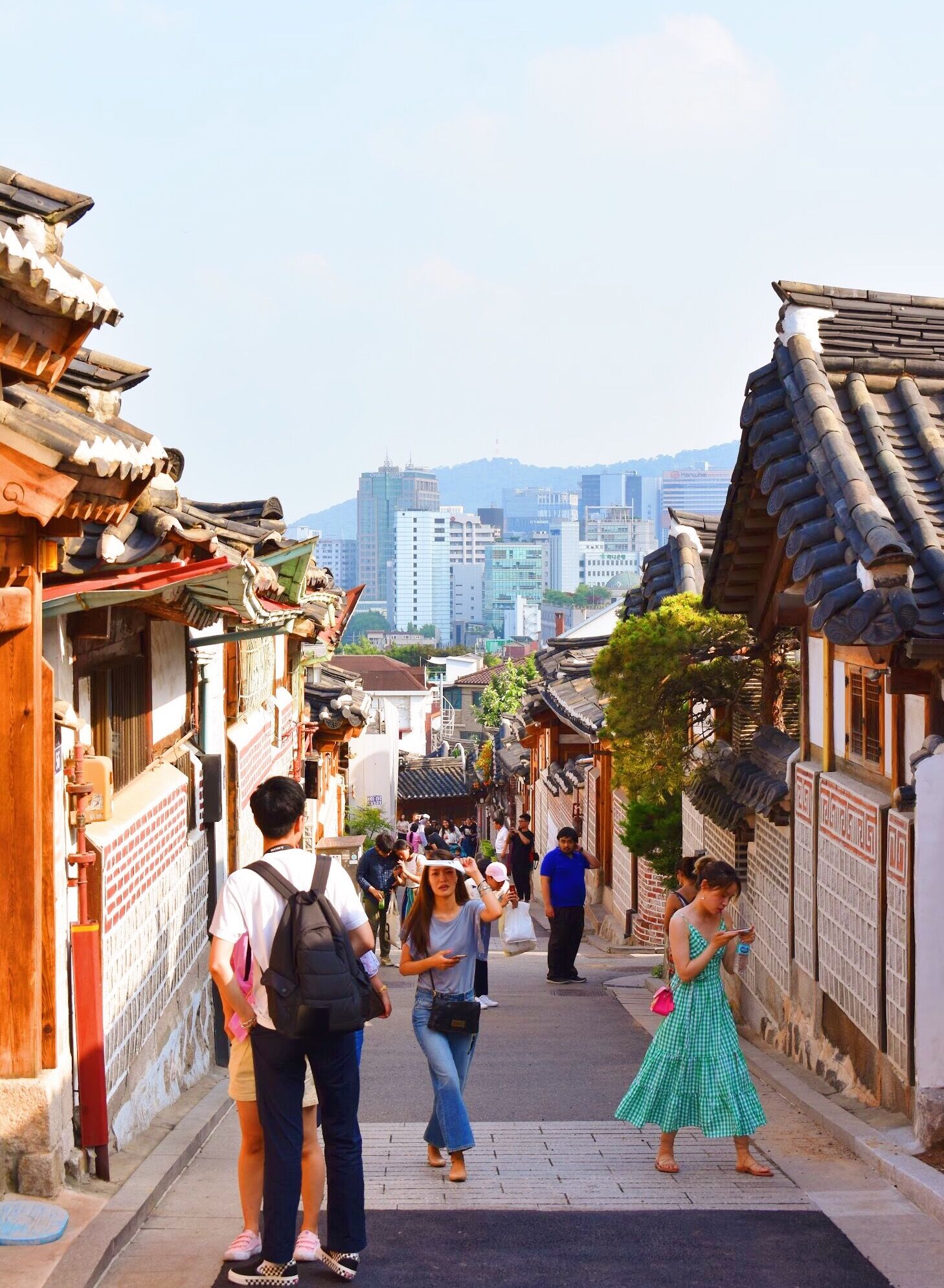


Study Abroad With Harvard Faculty Around the World
Expect a true Harvard experience this summer. During a Harvard Summer School Study Abroad program, you will engage your intellectual curiosity with Harvard faculty, build a new network of friends, and expand your understanding of the world.
The programs, from five to eight weeks in length, provide a range of academic experiences and opportunities, from focused foreign language and culture courses to immersive study of location-specific topics in the humanities, social sciences, and natural sciences.
Our office hours of operation are Monday to Friday, 9 a.m. – 5 p.m. ET. Interested in learning more about our programs? Please email us at SummerAbroad@Summer.Harvard.edu.
Our Address:
Harvard Summer School
Study Abroad Programs
51 Brattle Street
Cambridge, MA 02138
Students enrolled at any accredited university are welcome to apply. Harvard Summer School reserves the right to remove an applicant from consideration or later withdraw enrollment in its discretion, including without limitation in situations that may raise health, safety, behavioral, or reputational concerns or in situations that may trigger United States or other local regulatory compliance considerations. Harvard Summer School does not discriminate against applicants or students on the basis of any characteristic protected by law or identified in the university’s non-discrimination policy.
All programs subject to change.
Summer Study Abroad Programs
-
Greece
Political and Natural Environments of the Eastern Mediterranean from Antiquity to the Present – Comparative Cultural Approaches
-
Kenya
Explore humanity’s evolutionary origins and dynamic future through climate science, ecology, and fossil excavations in Kenya’s Rift Valley.
-
Kyoto, Japan
Immerse yourself in Japanese culture and learn about East Asia and the world using Kyoto as a living classroom.
-
Madrid, Spain
Study Spanish language, history, and culture in Spain’s dynamic, elegant and hip capital city.
-
Mexico
Advanced Spanish and Public Art in Mexico’s dynamic capital.
-
Prague, Czech Republic
Immerse yourself in the Czech language and culture in the heart of Europe.
-
São Paulo, Brazil
An experiential immersion into Brazilian struggles for justice, social change, and innovation.
-
Seoul, Korea
Learn Korean language and explore the richness of modern Korean culture and history.
-
Shanghai, China
Travel through China’s economic transformation on the global stage, and explore how we learn—and unlearn—what we know to disrupt your old worldview, question inherited truth, and see everything anew.
-
Taipei, Taiwan
Intensive Chinese language and cultural immersion in one of East Asia’s most dynamic cities
-
Torino, Trento, and Siena, Italy
Spend the summer in three fascinating Italian cities, studying and experiencing beauty as a tool for building community and training the imagination.
-
Venice, Italy
Benefits of Studying Abroad Over the Summer
Studying abroad gives you an immersive learning experience that will help you become a more informed global citizen in today’s interconnected world, build independence, and gain confidence.
You will be challenged to step out of your comfort zone while immersing yourself in the rich art, history, and culture of locations in Europe, Africa, the Americas, or Asia and expand your viewpoint of the world. You will have the chance to learn your chosen subject within the context of the country you’re studying in.
Participating in a study abroad program also exposes you to new cultures, helping you discover new foods, music, traditions, and local activities that most tourists miss. The connections you make during a study abroad program can become lifelong friendships. Studying abroad can also fast-track your foreign language skills and deepen your understanding of another culture.
How to Apply to Study Abroad This Summer
Applications to study abroad through Harvard Summer School in Summer 2026 open in early December 2025. In order to be considered for Harvard Study Abroad, all applications must be received by January 29, 2026.
To apply to a program, you must:
- Be at least 18 years old
- Have completed at least one year of college or be a first-year student
- Be in good academic standing
Students enrolled at any accredited university are welcome to apply.
The online application for all study abroad programs include:
- Basic personal information
- A statement of interest
- Your most recent transcript
- Program-specific requirements (if applicable, may include letters of recommendation, references, etc.)
You may apply to no more than two programs. If applying to two programs, you will be asked to rank your two applications in order of preference (first and second choice). Any applications submitted in excess of the maximum of two will be automatically withdrawn.
In early December, a link to the application for your desired program will be available on the program’s webpage.
Costs for Studying Abroad
The cost of each program varies depending on which program you choose. More information is available on each program’s webpage.
The program fee includes:
- Tuition
- Accommodations
- Scheduled program activities
- Some meals
Out-of-pocket expenses not covered by the program fee:
- International airfare
- Ground transportation
- Meals not include in the program fee
- Personal expenditures, communications, course materials, and miscellaneous
Financial assistance is offered to a limited number of admitted and eligible Harvard College students each year. Students from other institutions should consult their financial aid offices.
FAQs About Studying Abroad
How long are the summer abroad programs at Harvard?
The length of a study abroad program varies depending on the location of your program. Harvard Summer School Study Abroad programs range from five to eight weeks in length during the summer, with most starting sometime in June.
Are there scholarships or financial aid for summer study abroad programs?
The Summer Funding Opportunities Office (SFO) offers funding for a limited number of admitted and eligible Harvard College students. If you are a Harvard College student, you will be asked on your Harvard Summer School Study Abroad application if you would like to be considered for funding. Only students on financial aid at the College are eligible to be considered for a funding award. Funding selection is by lottery, and all awards cover full program tuition plus a travel stipend. SFO funding awards are tied to a specific program and cannot be transferred to another program.
If you opt in to be considered for funding, you agree to allow SFO to obtain your financial aid status from the Harvard College Griffin Financial Aid Office and share it with HSS staff and other centers that offer funding for HSS study abroad programs.
If you have questions about SFO funding for Harvard Summer School Study Abroad Programs, email SummerFunding@fas.Harvard.edu.
Students enrolled at other institutions outside Harvard should consult their financial aid offices.
Do I need a visa for a study abroad summer program?
For many — but not all — countries, United States citizens do not require a visa for stays less than 90 days. You are responsible for learning the visa requirements of your destination based on your citizenship and for obtaining your own visa should one be required.
The U.S. Department of State maintains a list of countries with country-specific information, including entry/exit requirements.
What type of health insurance is needed to study abroad?
All Harvard Summer School students must retain valid health insurance covering the entirety of the summer term, and are responsible for familiarizing themselves with their insurance plan policies, including reimbursement protocols for care received overseas.
Are You Ready to Study Abroad this Summer?
Start your journey to academic and personal growth with Harvard Summer School’s Study Abroad program.